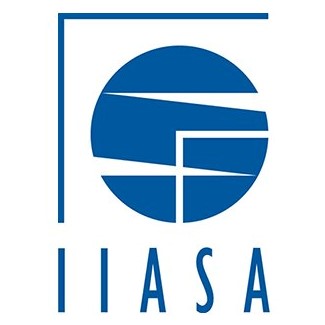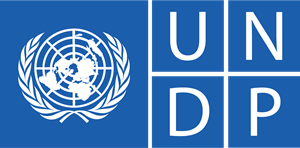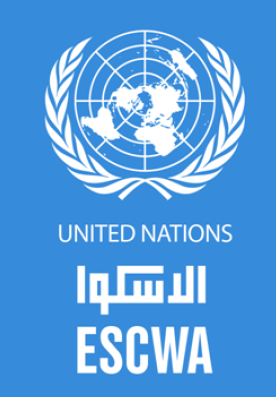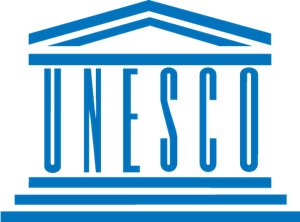Duties and Responsibilities
ORGANIZATION SETTING The United Nations Environment Programme (UNEP) is the United Nations systems designated entity for addressing environmental issues at the global and regional level. Its mandate is to coordinate the development of environmental policy consensus by keeping the global environment under review and bringing emerging issues to the attention of governments and the international community for action. This consultancy is located at Headquarters in the Evaluation Office which reports directly to the Executive Director. The consultant reports to the Evaluation Manager and the Director of the Evaluation Office. THE PROJECT The Caribbean Small Island Developing States (SIDS) face unique challenges due to their limited land area, fragile economies, and heavy reliance on external energy sources—challenges that are further compounded by growing populations. While agriculture was historically dominant, many Caribbean economies have gradually shifted toward tourism, manufacturing, and services. However, these sectors are highly vulnerable to external shocks, especially climate change, which threatens both agriculture and tourism through rising sea levels, hurricanes, and coastal degradation. Despite notable progress in several areas, significant obstacles remain in the management of water, land, and biodiversity resources. This project's (IWEco) objective was to contribute to the preservation of Caribbean ecosystems that are of global significance and the sustainability of livelihoods through the application of existing proven technologies and approaches that are appropriate for small island developing states through improved fresh and coastal water resources management, sustainable land management and sustainable forest management that also seek to enhance resilience of socio-ecological systems to the impacts of climate change. This project was expected to contribute to the uptake of appropriate solutions to address water, land and biodiversity resource degradation in the Caribbean. Partnership is a central tenet of the project which is being implemented through a network of international, regional, and national partners. Ten countries participated in the Project (Antigua & Barbuda; Barbados; Cuba; Dominican Republic; Grenada; Jamaica; Saint Kitts & Nevis; Saint Lucia; Saint Vincent & the Grenadines; Trinidad & Tobago). The project aimed to promote innovative, climate-resilient approaches to managing water, land, and ecosystems through national sub-projects that improved livelihoods and ecosystem services. The project also intended the strengthened national and regional systems for monitoring environmental status in line with key international agreements. In addition, the project supported policy, institutional, and capacity reforms for sustainable land and water management and ecosystem governance. Finally, it aimed to enhance knowledge exchange and stakeholder engagement through targeted networks and dissemination of best practices. THE EVALUATION In line with the UNEP Evaluation Policy and the UNEP Programme and Project Management Manual, the Terminal Evaluation is undertaken at operational completion of the project to assess project performance (in terms of relevance, effectiveness and efficiency), and determine outcomes and impacts (actual and potential) stemming from the project, including their sustainability. The Evaluation has two primary purposes: (i) to provide evidence of results to meet accountability requirements, and (ii) to promote operational improvement, learning and knowledge sharing through results and lessons learned among UNEP and the main project partners. Therefore, the Evaluation will identify lessons of operational relevance for future project formulation and implementation, especially where a second phase of the project is being considered. Recommendations relevant to the whole house may also be identified during the evaluation process. THE EVALUATION TEAM For this Evaluation, the Evaluation Team will consist of an Evaluation Consultant who will work under the overall responsibility of the Evaluation Office represented by an Evaluation Manager, in consultation with the UNEP Task Manager, Fund Management Officer and the Subprogramme Coordinator. Specific responsibilities for the Evaluation Consultant: In close consultation with the Evaluation Manager, the Evaluation Consultant will be responsible for the overall management of the Evaluation and timely provision of its outputs, data collection and analysis and report-writing. More specifically: 1. Inception phase of the Evaluation, including: • preliminary desk review and introductory interviews with project staff; • draft the reconstructed Theory of Change of the project; • prepare the evaluation framework; • develop the desk review and interview protocols; • draft the survey protocols (if relevant); • develop and present criteria for country and/or site selection for the evaluation mission; • plan the evaluation schedule; • prepare the Inception Report, incorporating comments until approved by the Evaluation Manager. 2. Data collection and analysis phase of the Evaluation, including: • conduct further desk review and in-depth interviews with project implementing and executing agencies, project partners, and project stakeholders, • (where appropriate and agreed) conduct an evaluation mission(s) to selected countries, visit the project locations, interview project partners and stakeholders, including a good representation of local communities. Ensure the independence of the Evaluation and the confidentiality of evaluation interviews; • regularly report back to the Evaluation Manager on progress and inform of any possible problems or issues encountered and; • keep the Project/Task Manager informed of the evaluation progress. 3. Reporting phase, including: • draft the Main Evaluation Report, ensuring that the evaluation report is complete, coherent and consistent with the Evaluation Manager guidelines both in substance and style; • liaise with the Evaluation Manager on comments received and finalize the Main Evaluation Report, ensuring that comments are taken into account until approved by the Evaluation Manager; • prepare a Response to Comments annex for the main report, listing those comments not accepted by the Evaluation Consultant and indicating the reason for the rejection; and; • (where agreed with the Evaluation Manager) prepare an Evaluation Brief (2-page summary of the evaluand and the key evaluation findings and lessons). 4. Managing relations, including: • maintain a positive relationship with evaluation stakeholders, ensuring that the evaluation process is as participatory as possible but at the same time maintains its independence; • communicate in a timely manner with the Evaluation Manager on any issues requiring attention and intervention. The Evaluation Consultant shall have had no prior involvement in the formulation or implementation of the project and will be independent from the participating institutions. The consultant will sign the Evaluation Consultant Code of Conduct Agreement Form. The Evaluation Consultant will be selected and recruited by the UNEP Evaluation Office through an individual consultancy contract. Comprehensive terms of reference will be shared with the consultant separately.
Qualifications/special skills
A first level university degree (Bachelor's degree or equivalent) in environmental sciences, international development or other relevant political or social sciences area is required. An advanced degree (Master's degree or equivalent) in the same areas is desirable. The years of experience is reduced by 2 for candidates who possess a master's degree in the related field. A minimum of ten (10) years of experience of technical / evaluation experience preferably including evaluating large, regional or global programmes and using a Theory of Change approach is required. Geographical experience and expertise in the Caribbean region is required. A good/broad understanding of preservation of ecosystem, coastal zone management, Small Islands Developing States (SIDS), natural resources management, and environmental management is desirable. Knowledge of the UN system and specifically the work of UNEP is desirable.






